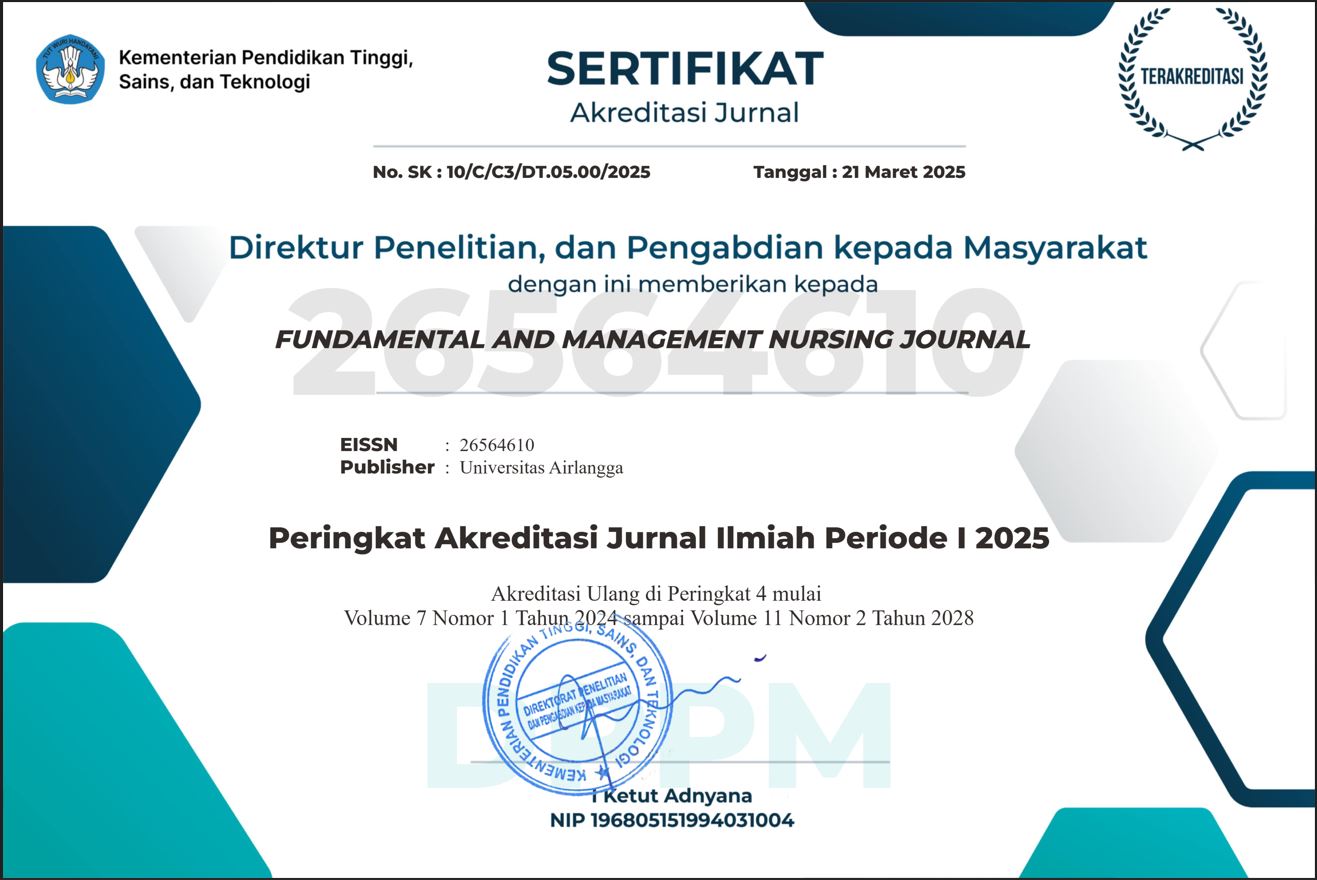Factors Associated with Perceived Behavioral Control and Adolescents Smoking Behavior in a Rural Area of Indonesia
Downloads
Introduction: For the most recent, smoking among teenagers was found as a common behavior in the society. The behavior was studied to be associated with self-control ability along the transition's period from child to adulthood. Nevertheless, less study on this issue was conducted in developing country with a huge population of teenagers such as in Indonesia. This study aims to determine the relationship between Perceived Behavioral Control (PBC) and Smoking Behavior among adolescents in a rural area of Indonesia.
Method: This study applied cross-sectional approach. Through purposive sampling technique, a total of 44 respondents involved. Data were collected by self-report paperbased questionnaire. Data analysis were conducted in two phases of descriptive and inferential statistics. The significant value (p) was set at 0.05 or lower.
Results: The results showed almost all respondents had PBC as many as 33 respondents (75.0%) and had been smoking behavior as many as 27 respondents (61.4%). Considering statistical analysis, the obtained p value was 0.368 or higher than 0.05. The result showed no relation between PBC and smoking behavior. Less association in the two variables might relate to the influence of peers and the informant's social environment.Conclusion: This study underlined the urgency of supporting teenagers by way strengthening their self-confidence and establishing peer's support group on the impact of smoking. It is highly suggested, community health education in the school settings should consist of establishing teenager's self-awareness. Further research examining factors that relate to their critical ability to make decision are necessary.
Copyright (c) 2022 Eliza Zihni Zatihulwani, Elly Rustanti, Sylvie Puspita, Sinta Bella

This work is licensed under a Creative Commons Attribution 4.0 International License.
1. The journal allows the author to hold the copyright of the article without restrictions.
2. The journal allows the author(s) to retain publishing rights without restrictions.
3. The legal formal aspect of journal publication accessibility refers to Creative Commons Attribution (CC BY).
















